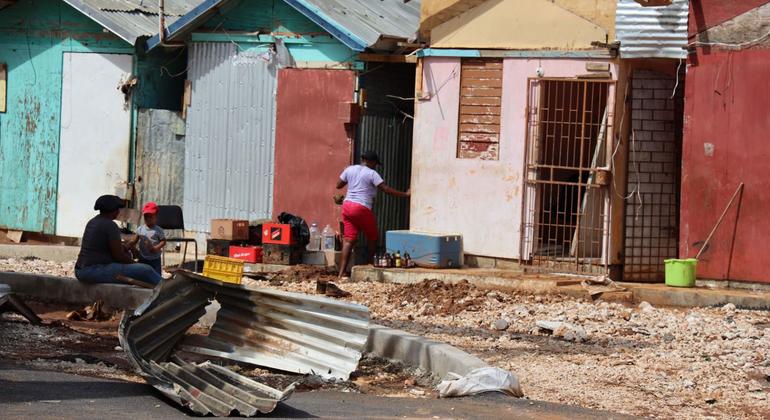The death toll from Hurricane Melissa continues to rise in the Caribbean, approaching 50 fatalities. Jamaican authorities have reported at least 19 dead, while the situation in Haiti is even more devastating, with 30 deaths and 20 people still missing.
More than 6,000 people in Jamaica have sought shelter in evacuation centers due to the disaster. Conditions for those evacuated are critical, with power outages worsening the humanitarian situation on the island. Brian Bogart, a representative of the World Food Program, described the scene in Black River as “apocalyptic,” noting that “it looks like a bomb went off” and that many people are spending the night on the streets.
In response to this crisis, the World Food Program has sent 5,000 food kits, providing a week’s worth of food for 15,000 people. The World Health Organization has expressed concern over the damage suffered by three major hospitals in Jamaica, further complicating healthcare amidst the disaster. Additionally, the WHO has deployed emergency medical teams and sent supplies to Cuba, where over three million people are without electricity and facing severe flooding.
In a broader global context, the High Commissioner for Human Rights has condemned the illegality of airstrikes conducted by the United States against vessels in the Caribbean and the Pacific, which have resulted in more than 60 deaths since early September. Volker Türk, the High Commissioner, emphasized that these actions are unjustifiable under international law and called for an immediate cessation of these operations.
The Washington government justifies its actions by citing a “non-international armed conflict” with drug trafficking groups; however, the UN argues that law enforcement methods, rather than military ones, should be employed to combat drug trafficking.
On another front, the humanitarian situation in Gaza remains critical, despite 44 distribution points allowing nearly a million people to receive food packages. This distribution is hindered by restrictions imposed by Israel, which have diverted all aid movements, exposing convoys to greater risks.
Atrocities in Sudan have also come to light following the fall of El Fasher, with testimonies revealing extrajudicial executions and rapes by the Rapid Support Forces. Communications in the city are disrupted, complicating the acquisition of accurate information on the number of affected civilians, although estimates indicate that deaths could reach the hundreds. Urgent calls have been made for independent investigations into these human rights violations and to ensure accountability for those responsible.
via: MiMub in Spanish











